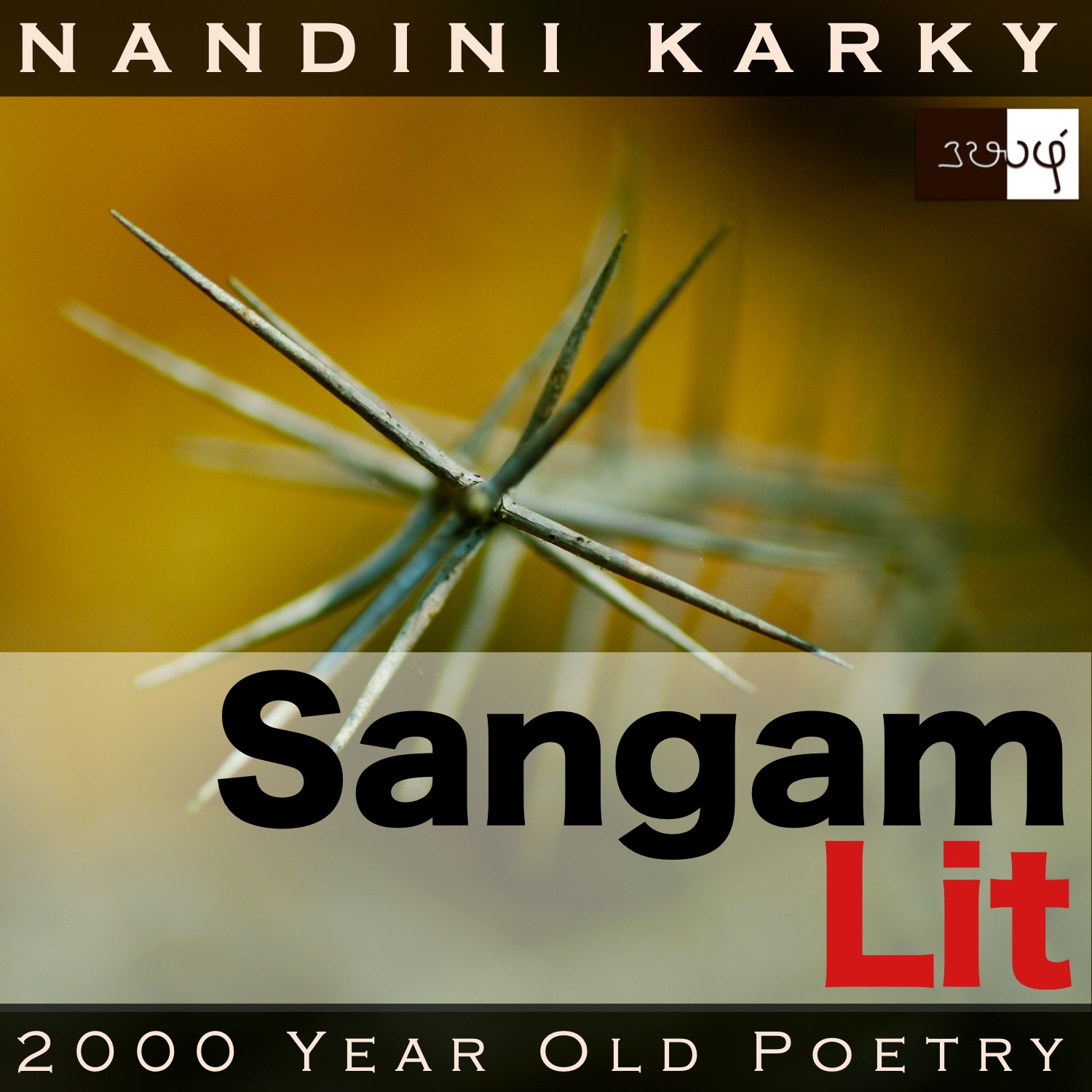Podcast: Play in new window | Download
Subscribe: Apple Podcasts | Spotify | Amazon Music | Android | iHeartRadio | Email | TuneIn | RSS | More

In this episode, we perceive the angst in a lady’s heart about her beloved’s changed state, as depicted in Sangam Literary work, Kurunthogai 202, penned by Alloor Nanmullaiyaar. The verse is situated in the farmlands of ‘Marutham’ and speaks in the voice of the lady to her confidante, refusing the man, entry to their home.
நோம், என் நெஞ்சே! நோம், என் நெஞ்சே!
புன் புலத்து அமன்ற சிறியிலை நெருஞ்சிக்
கட்கு இன் புது மலர் முட் பயந்தாஅங்கு,
இனிய செய்த நம் காதலர்
இன்னா செய்தல் நோம், என் நெஞ்சே!
‘An aching heart’ throbs all through the verse. The opening words ‘நோம், என் நெஞ்சே’ meaning ‘hurt is my heart’ repeats three times in this tiny song, echoing the intensity of the emotion. Next, we encounter an element in nature in ‘சிறியிலை நெருஞ்சி’ referring to ‘a caltrop plant with small leaves’. In ‘கட்கு இன் புது மலர்’, the picturesque sight of ‘a new flower that is pleasing to the eyes’ blooms before us. The nature of the beloved in the past is rendered in ‘இனிய செய்த நம் காதலர்’ meaning ‘my lover who was good and kind’. Ending with the opening words ‘நோம் என் நெஞ்சே’, the verse comes a full circle and beckons our empathy.
Why is the lady’s heart suffering so? The context reveals that the man and lady were leading a married life when the man took to keeping the company of courtesans. This fills the lady with anger. Realising the mistake in his ways, the man intends to return home to the lady and seeks the confidante’s help. When the confidante approaches the lady with the man’s request, the lady says, “My heart suffers! My heart suffers! The small-leafed ‘nerunji’ plant, densely packed in the forest land, at first, pleases the eye with its fresh flowers and then turns into thorns. Akin to that, my lover, who did me good, now does me harm. And so, my heart suffers so!” With these words, the lady makes it clear the man has hurt her by his behaviour and she’s still unable to accept him back into her life.
Time to explore the nuances. The predominant feeling in the lady is that of heartfelt pain. To visualise this abstract emotion, the lady seeks the help of a plant, considered a weed today. In Tamil, it’s called ‘Nerunji’ and all across the world, in places as far apart as North America and Australia, where it has been introduced by human migration, it goes by many names, the most interesting of which are devil’s eyelashes, goat’s head and puncture vine. Returning to listen to the lady, we find her talking about how this plant, that spreads in the forest regions, blooms open with bright flowers and then slowly, becomes thorns. We have heard about flowers having thorns but could a flower become a thorn? Turns out so, in the case of this caltrop weed, where after opening out into radiant yellow petals, it slowly turns into a fruit with sharp spines, looking like a goat’s head with horns. These spines called as ‘burs’ are so sharp that even bicycle tyres are punctured on impact!
Why exactly is the lady mentioning this curious but common plant? Only to say, that’s exactly who the man is. Before, during his courtship, he was gracious and benevolent to the lady but now, he does the right opposite things and causes her hurt and suffering, the lady concludes. What a striking way to say that a beloved has changed from who they were, by referring to the nature of this plant that changes flowers to thorns!




Share your thoughts...